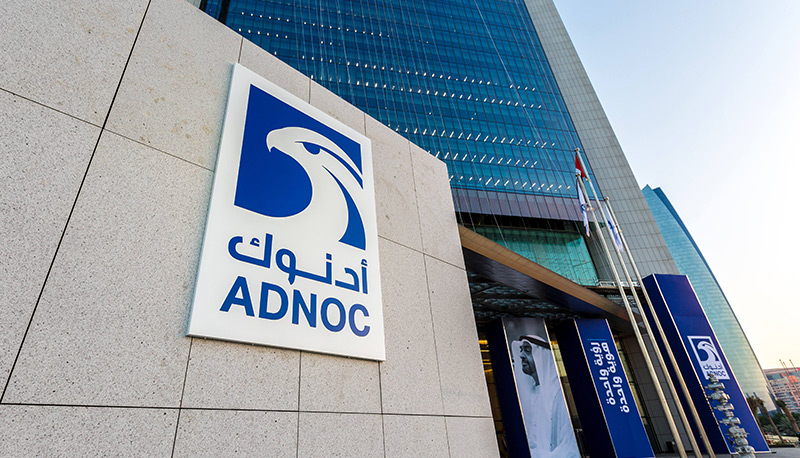UAE’s Abu Dhabi National Oil Co (Adnoc) has signed hydrogen deals with German firms as the country plans to slash its reliance on Russian gas.
German Minister for Economic Affairs and Climate Action, Robert Habeck, and executives from German companies visited the UAE on Monday in order to secure hydrogen supplies.
This follows Habeck’s visit to Qatar where he agreed on a long-term energy partnership with Qatar.
Following the deal, state-owned QatarEnergy said it would work with Germany on long-term LNG supplies to the country.
Germany currently has no LNG terminals and the government has already backed the construction of the Brunsbuettel LNG terminal and Uniper’s LNG import and hydrogen facility in Wilhelmshaven.
RWE, which has a 10 percent stake in the German LNG Terminal, also plans to build an ammonia import facility near this plant.
Besides these projects, Germany’s Hanseatic Energy Hub is also working on the Stade LNG import terminal near Hamburg while Belgium-based Tree Energy Solutions (TES) is looking to import both LNG and hydrogen via a planned hub in the German port of Wilhelmshaven.
Ambitious hydrogen plans
German firms and Adnoc have signed several agreements during the visit to UAE.
These agreements build upon the longstanding Emirati-German energy partnership as well as the Ministerial Emirati-German hydrogen task force that was inaugurated in November 2021, Adnoc said in a statement on Monday.
As part of its ambitious decarbonization drive, the German government’s National Hydrogen Strategy expects clean hydrogen demand of up to 3 million tons per annum by 2030. Demand may grow to over 11 mtpa by 2050.
On the other side, Adnoc, an established hydrogen and LNG producer, plans to “significantly grow its clean hydrogen production,” it said.
The firm already supplies the fast-growing hydrogen export markets of Asia, such as Japan and South Korea.
Adnoc and Fertiglobe, a strategic partnership between OCI and Adnoc, have sold “multiple low-carbon ammonia pilot cargoes for potential use in a wide range of industrial applications,” it said.
As part of its expansion plans in Europe, Adnoc has identified Germany as a “key export market” with a target of providing up to 25 percent of the country’s imported hydrogen.
First ammonia cargoes to Germany
Adnoc said it has signed individual agreements with German companies Aurubis, RWE, GETEC and STEAG to explore opportunities for collaboration in low-carbon and renewable hydrogen derivatives.
This includes the execution of the first blue ammonia demonstration cargoes, produced by Fertiglobe, from the UAE to Germany in 2022 for use in a variety of applications, it said.
Adnoc will provide ammonia to its partners in Germany from Fertiglobe’s Fertil plant in the Ruwais Industrial Complex in Abu Dhabi.
In addition, Adnoc and its partners are investing in a new 1 million metric tons per annum blue ammonia project at TA’ZIZ in Ruwais, subject to regulatory approvals.
Uniper, Jera and Hydrogenious
Adnoc entered into a joint study agreement with Uniper and Hydrogenious of Germany and Japan’s Jera to explore hydrogen transportation between UAE and Germany using Hydrogenious’ liquid organic hydrogen carrier (LOHC) technology.
Under the agreement, the parties would explore the opportunity to scale up existing LOHC technology to help meet growing global demand for the transportation of hydrogen, the firm said.
Anoc also entered into a memorandum of understanding with HHLA, a Hamburg-based logistics and transportation company, and AD Ports Group to work on realizing Hamburg’s ambition to become a hydrogen import hub in Germany, it said.

